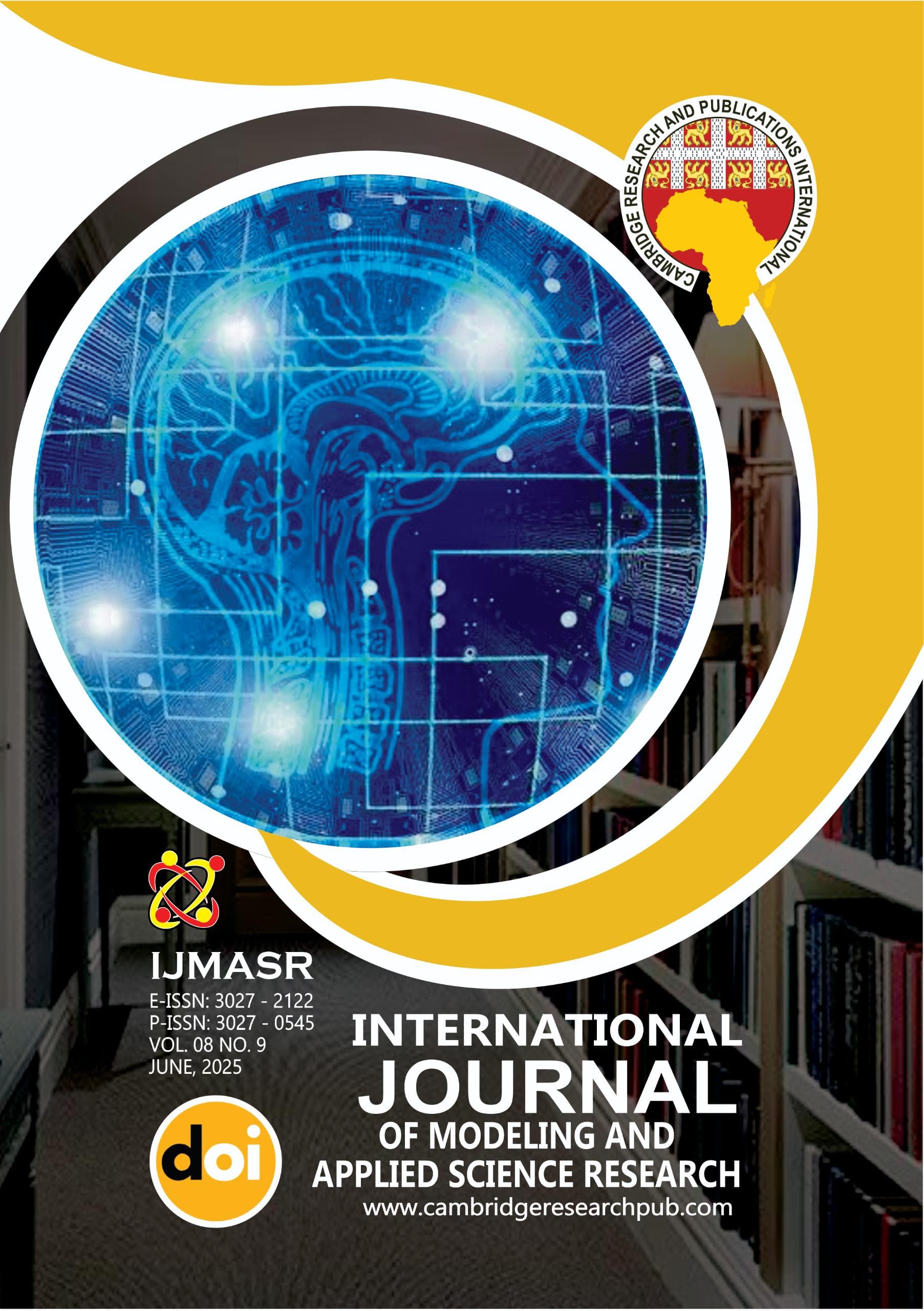IMPROVED CYBERSECURITY RESILIENCE MODEL FOR SENSITIVE DATA PROTECTION IN NIGERIAN TERTIARY INSTITUTIONS
Main Article Content
Abstract
In the digital era, cybersecurity is a critical concern for organizations worldwide, especially Nigerian tertiary institutions managing sensitive data such as student records, financial details, and strategic plans. As Nigeria advances digitally, it faces growing threats, making traditional reactive security measures inadequate. Proactive, adaptive strategies are essential. This study proposes a tailored cybersecurity resilience model with a focus on hybrid encryption to enhance data protection. The research explores a hybrid approach combining Modified AES-256 (16 rounds) and RSA-2048 for secure key exchange. While symmetric encryption like AES (Advanced Encryption Standard) offers high performance and confidentiality, it lacks secure key distribution this is where asymmetric encryption like RSA (Rivest-Shamir-Adleman) excels. The hybrid model leverages both: RSA (Rivest-Shamir-Adleman) secures key exchange, while Modified Advanced Encryption Standard efficiently encrypts large data volumes, ensuring strong security and acceptable performance, particularly for external or inter-institutional data transfers. Experimental results using real-world datasets from Nigerian institutions showed that although Hybrid AES-RSA had higher latency and lower throughput due to RSA’s computational demands, it provided the highest security level. It proved ideal for highly sensitive exchanges such as examination materials or financial reports over untrusted networks. The system resisted cryptanalytic attacks effectively, thanks to RSA’s 2048-bit key strength. Despite slower processing during asymmetric operations, its support for integrity, non-repudiation, and authentication made it superior in high-security contexts. The study emphasizes the need for a layered cybersecurity framework encompassing technical controls, policy enforcement, and workforce training. Nigerian tertiary institutions should adopt hybrid encryption for external communications and use optimized symmetric encryption like Modified Advanced Encryption Standard internally. Integrating these strategies into a broader cybersecurity resilience model can help protect institutional data and contribute to national cybersecurity capacity building.
Downloads
Article Details
Issue
Section

This work is licensed under a Creative Commons Attribution 4.0 International License.




